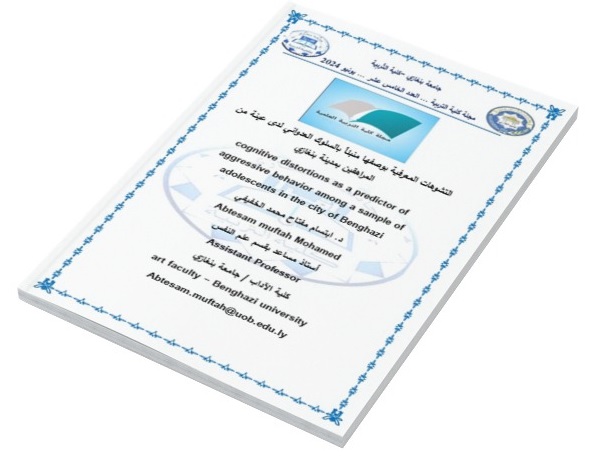cognitive distortions as a predictor of aggressive behavior among a sample of adolescents in the city of Benghazi
DOI:
https://doi.org/10.37376/fesj.vi15.5566Keywords:
cognitive distortions, aggressive behaviorAbstract
This study aimed to identify cognitive distortions as a predictor of aggressive behavior among a sample of adolescents in the city of Benghazi, by first identifying the relationship between the variables of the study and then the extent of the influence of the dimensions of cognitive distortions combined on aggressive behavior Secondly, to identify the dimensions of cognitive distortions that most influence aggressive behavior, and the study procedures and results were determined on the sample used, which consisted of (130) students from the secondary stage in the city of Benghazi. To collect data, the Cognitive Distortions Scale and the Aggressive Behavior Scale were used. To analyze the data statistically, I used the Social Sciences Package (spss), where I used the Pearson correlation coefficient, simple regression analysis, and multiple regression analysis. The results of the study concluded that there is a strong relationship between cognitive distortions and aggressive behavior, and that aggressive behavior can be predicted through cognitive distortions, and that the dimensions of cognitive distortions that contribute most to predicting aggressive behavior are (self-reproach / selective abstraction / over-generalization).
Downloads

Downloads
Published
How to Cite
Issue
Section
License
Copyright (c) 2024 Science Journal of Faculty of Education

This work is licensed under a Creative Commons Attribution-NonCommercial-NoDerivatives 4.0 International License.














